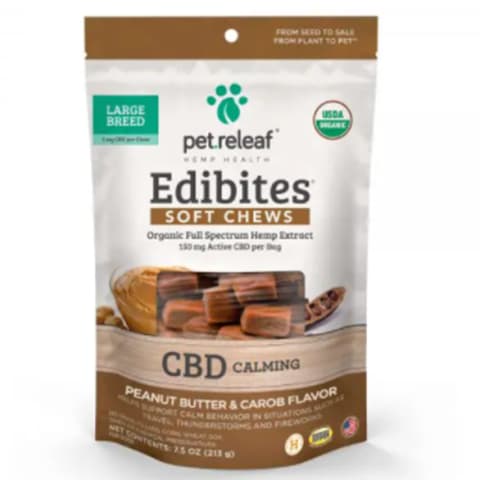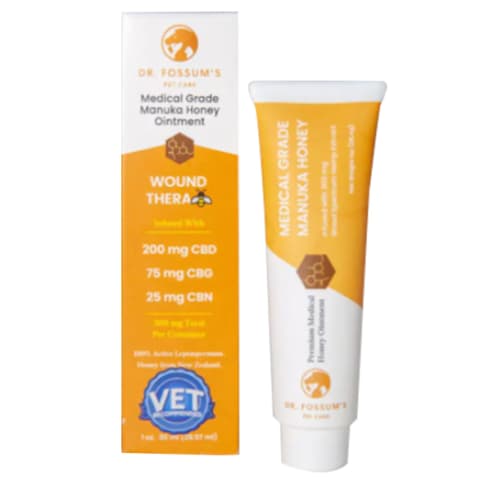You may have considered using cannabidiol, commonly known as CBD, for your pooch. We’ve got the details on what you need to know about how, when, and why to give dogs CBD. She adds that CBD is generally safe for dogs but pet parents should be careful to choose the right brands and dosage, and monitor their pups for any side effects. They should also consult their dog’s veterinarian before starting them on CBD. Some people opt to administer CBD to dogs in place of traditional anti-anxiety treatments during storms, fireworks, or other situations that cause their furry best friends stress. Others use CBD to help pets cope with soreness, seizures, and other illnesses. “Benefits commonly reported include a reduction in anxiety as well as destructive chewing, a calmer demeanor without being sedating, reduction in joint discomfort and other aches and pains, and an overall anti-inflammatory effect,” says Brian Larsen, co-founder and CEO of RestoraPet pet supplements. “Combined, there is a noticeable improvement in quality of life for many pets that use CBD." Through the production of molecules called endocannabinoids, the ECS helps keep other bodily systems (like the immune and nervous systems) in balance, explains an article published in PNAS. “There are cannabinoid receptors in the liver, spleen, intestinal tract, brain, heart, muscles, bone, reproductive system, circulatory systems, and more—basically the whole body,” says Sarah Wooten, DVM, CVJ, with Pumpkin Pet Insurance. “When the system becomes deficient in endocannabinoids, that is where supplementation with CBD (cannabidiol) oil comes in.” CBD is a phytocannabinoid found in the cannabis plant that can help human and animal endocannabinoid systems run more smoothly. But it bears repeating: You should always check with your veterinarian before adding CBD to your pet’s regimen. This is especially important if your pup has a medical condition or takes medications. But Wooten says to absolutely check with your vet before changing your dog’s seizure meds. “The main concern with using CBD products for cancer treatment is the cancer developing tolerance and resistance to CBD,” Wooten explains. “So always talk with your veterinarian or veterinary oncologist before administering CBD products to a dog that is undergoing cancer treatment.” Long-term use can lead to elevated liver enzymes, a common side effect when dogs are on traditional medications, as well, Ochoa adds. Short-term side effects of CBD use in dogs include diarrhea, vomiting, dry mouth, a drop in blood pressure, and drowsiness. The standard therapeutic dose for CBD in dogs is 0.1 to 2 mg/kg given twice daily, Wooten says. But some dogs may benefit from a slightly higher dose. “Not all dogs will respond to CBD the same way,” she explains. “So this dosage needs to be adjusted on a case-by-case basis, and the best way to do that is with a veterinary professional that is well versed in CBD products.” ElleVet Calm and Comfort Chews ($14.95) Charlotte’s Web Hip and Joint Chews For Dogs ($19.99) Canna Companion Regular Strength CBD Capsules ($75.77) Pet Releaf Calming Chews ($27.99) Dr. Fossum also just launched a manuka honey/CBD skin salve for cuts and burns, developed to help animals coming out of the Northern California wildfires last year. So it might be a good first-aid item to have on hand. Dr. Fossum’s Manuka Honey Wound TheraBee ($24.99) If your pup’s got aches and pains holding them back or occasional anxiety, CBD might be able to help bring relief. But, once again, if your pooch is being treated for a medical condition or takes medications, be sure to consult your veterinarian before adding CBD to the mix as a solution. Then, get back to those ear scratches and belly rubs, stat! And if taking cbd yourself is of interest, check out our roundup of cbd capsules for humans.








